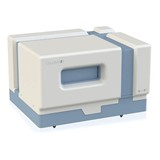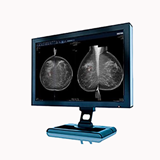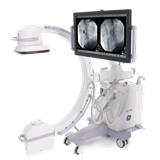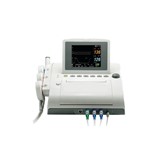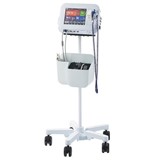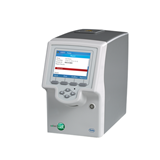The projects are all due to start on 1 May 2009 and are scheduled to last for three years.
Research projects:
- Professor Quentin Pankhurst,has received £1,648,342 to lead a project investigating novel high-efficiency targeting agents that can treat locally metastatic cancers (cancers that spread out from a primary site in the body). Professor Pankhurst is Scientific Director of the Royal Institution and, until recently, was the Deputy Director of the London Centre for Nanotechnology (LCN).
- Dr Rachel McKendry (London Centre for Nanotechnology) won £1,636,554 to fund UCL's role in a world-leading consortium to engineer and commercialise the next generation of multi-marker HIV smart chips, which will rapidly diagnose and monitor HIV in resource-limited environments such as district hospitals, GP surgeries and developing countries. This multidisciplinary joint venture, which is a collaboration with Imperial College London, will also involve the UCL/MRC Centre for Medical Molecular Virology, Royal Free and UCL Hospitals, the government-funded Comprehensive Biomedical Research Centre at UCLH NHS Trust, in conjunction with the Health Protection Agency and industrial partners as advisors.
- Dr Stephen Hart (UCL Institute of Child Health) will lead a project with £1,391,287 of funding to develop nanotechnologies for the targeted delivery of novel therapies for Alzheimer's disease, the major cause of dementia in the elderly. This research is a collaboration involving King's College London, the University of Bristol and Bristol NHS Trust.
- Dr Andreas Demosthenous (UCL Electronic & Electrical Engineering) won £366,061 for UCL's participation in research on new portable, non-invasive imaging methods that use low-level electrical measurements to detect colon cancer biomarkers (indicators of the disease). This project will be undertaken with Middlesex University and City University London.
The four grants follow funding worth nearly half a million pounds received by Dr Ivan Parkin of UCL Chemistry in the 2008 round of nanotechnology funding from the EPSRC to research inexpensive, efficient and longlasting technology to capture energy from the sun.
Professor Gabriel Aeppli, Director of the London Centre for Nanotechnology and co-investigator on the HIV project, said: "The award of such a large fraction of the EPSRC Nanotechnology for Healthcare funds to the LCN community in London represents an excellent return on its strategy of building on multidisciplinary competencies in London, spanning fields from basic physics through to clinical practice."











-160x160-state_article-rel-cat.png)





